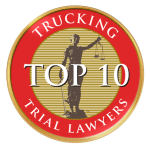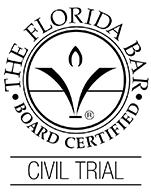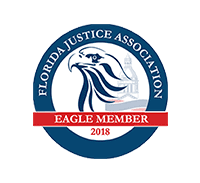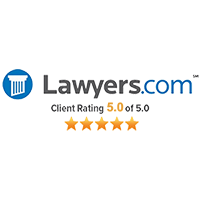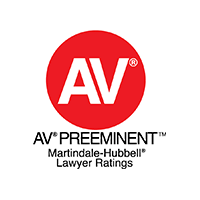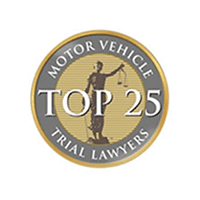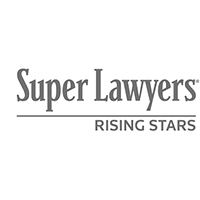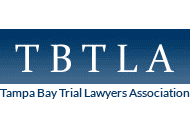As more autonomous vehicles hit the road, the question of liability may be complex, as there is a classification system regarding how autonomous a vehicle is. Google’s self-driving cars, requiring no human intervention, have not been immune to accidents. Traditionally, auto accident claims hinge on driver negligence, but autonomous vehicles shift the focus toward potential manufacturing defects and design flaws.
Generally, the manufacturer may be liable for accident damages. However, in semi-autonomous vehicles with advanced driver assistance features such as cruise control or automatic braking, there may be a shared fault between the motorist and manufacturer, depending on which party was controlling the vehicle at the time of the incident. The attorneys at Dismuke Law understand the complexities of liability in autonomous vehicle accidents and are prepared to fight for you.
Is the Manufacturer Liable After an Autonomous Vehicle Accident?
Currently, most auto accident claims in Florida are based on driver negligence resulting from human error. However, when an accident occurs while a vehicle is operating in autopilot mode and is effectively “driverless,” the blame may not lie with the driver. Instead, it could be attributed to a defect in the vehicle itself, suggesting that manufacturers could be held liable.
A major concern regarding the liability of self-driving car accidents centers on potential defects in the technology of these autonomous vehicles, such as manufacturing flaws or design errors. Manufacturers of these driverless cars are legally obligated to ensure products are safe for use and do not pose unreasonable risks to consumers.
Under product liability laws, if a crash occurs because of a failure in the vehicle’s hardware, a software glitch, or any other defect that originated during its design or manufacturing, the maker of the autonomous vehicle could be held strictly liable for damages such as injuries or property damage, even if all reasonable safety measures were in place.
Consider a scenario where a self-driving car fails to recognize another vehicle due to a malfunctioning sensor system. If this malfunction is traced back to a defect in the manufacturing of the sensors, the affected individuals could pursue claims for damages against the vehicle’s manufacturer, covering medical expenses, lost earnings, and pain and suffering.
How to Prove a Manufacturer Was at Fault
Unlike most personal injury claims, which require proof of negligence, strict product liability does not require the injured party to prove the manufacturer was at fault. Instead, it is enough to demonstrate the product was defective and this defect directly caused the injuries.
4 Additional Parties Who May Be Liable in Autonomous Vehicle Accidents
Aside from manufacturing issues, the distinct features of self-driving cars may expose various other entities to legal action if an accident occurs, including the following:
1. Software Developers
Self-driving cars rely heavily on sophisticated artificial intelligence and machine learning for their sensor systems and navigational functions. These are typically developed by software firms rather than traditional car manufacturers. If an accident is attributed to a software flaw or error, the injured parties might seek compensation from the developers.
2. Component Manufacturers
Similar to conventional cars, autonomous vehicles use components supplied by various third-party manufacturers, including those that make tires and sensors. Should a faulty part lead to a failure in the autonomous driving system and cause a crash, the producer of that component could face legal action.
3. Repair Shops and Technicians
Faulty maintenance or repairs on an autonomous vehicle’s systems, whether hardware or software, could impair its safety and functionality. If such negligence results in an accident, the repair personnel or shop could be held responsible.
4. Government Road Planners
Self-driving vehicles depend on accurate mapping data for navigation. If outdated or incorrect data provided by government road planners leads to an accident, those affected could potentially claim damages from the governmental body responsible for the data.
Speak With the Autonomous Vehicle Accident Lawyer at Dismuke Law
If you or someone you know has been involved in an accident involving an autonomous vehicle, you may be facing complex legal questions about liability. At Dismuke Law, we understand the unique challenges that come with these kinds of accidents. Determining whether the manufacturer or another party is responsible often requires deep legal analysis, and we’re here to help you navigate this uncharted territory.
As a Board Certified Civil Trial Lawyer, David C. Dismuke brings years of legal experience to every case. We are dedicated to holding manufacturers and other responsible parties accountable, ensuring you get the compensation you deserve for medical expenses, lost wages, and other damages. Contact us today at (863) 250-5050 or fill out our contact form for a free, confidential consultation.


![cftla-member[2]](https://www.1800askdave.com/wp-content/uploads/2022/03/cftla-member2.png)
![cftla-member[3]](https://www.1800askdave.com/wp-content/uploads/2022/03/cftla-member3.png)
